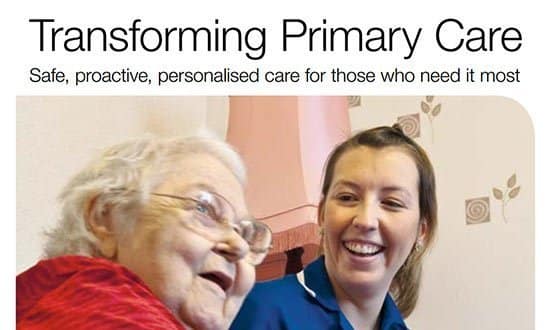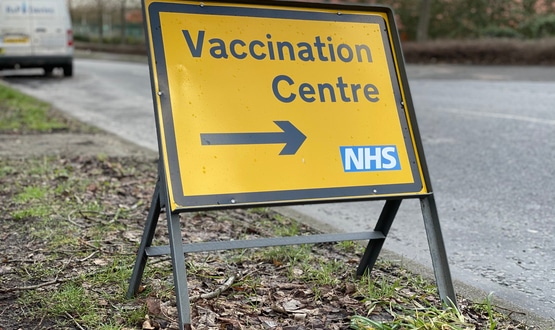Another view: of transforming primary care
- 28 April 2014

Last week, a group I have been working with failed to win a slot on the Prime Minister’s Challenge Fund for improving access to GP services, and an important document called ‘Transforming Primary Care’ was published.
What about the public? What about foundation trusts?
Essentially, it says the NHS is broke, nobody is going to put more money in, and that leaves us with a problem, as the population is aging and demand for investigations is rising. So we need to find savings and productivity gains.
To do this we need to work in a different way. A lot of the proposed “solution” comes from Barbara Starfield’s work, in which generalists working in the community act as gatekeepers in a holistic, pro-active, case management way, to keep people away from hospital specialists and their expensive investigations and treatments.
We GPs do some of that already, but we are currently being lambasted in the media by the statistically unfortunate for not getting it right in every, individual, very rare case.
Alas, the document doesn’t mention anything about teaching the electorate about Bayes theorem or changing our current compensation culture or pointing out how often we get it right.
More importantly, we have historically struggled to move work and, more importantly, the money that goes with that work. Some of this is due to powerful, sexy hospital specialities sucking in publicity and sympathy for their small number of patients.
But, personally, I believe the bigger issue has been that primary care trusts and, subsequently, clinical commissioning groups, haven’t been given the power to locally alter the national contract.
A foundation trust, reporting to Monitor and having to report a profit, just sticks two fingers up to the local commissioners and does what it likes, hiring as many profit making consultants as it wants and disregarding the needs of the population as a whole.
Community working is right
The policy I do agree with is the identification of high-risk patients in the community in order to case-manage them to stop their condition deteriorating – and so, hopefully, avoiding admissions.
This should deliver more than concentrating on “frequent fliers” (or patients who have already had multiple admissions) since there is often little you can do for them if their problem is medical (although in a lot of cases it is social or behavioural).
The paper talks about named, accountable GPs being available at the drop of a hat to these patients – for example via a dedicated telephone hotline.
I think it misses the point here – although perhaps it is a nice sound bite. As I have pointed out in comments on another article, when it comes to avoiding an admission the problem is not so much a patient getting hold of me, as a GP.
It is usually me being able to find someone (often a social worker) to help sort out the social side of that patient’s care. We often end up admitting not for medical reasons but social ones.
Health and social budgets and teams are separate and getting a multi-disciplinary team together to act in the patient’s best interests is going to be the challenge.
Most of the people who might work in such a team are more bothered about: 1. their own budgets/constraints on their activities; 2 their own paperwork and bureaucracy; 3. not being handmaidens to those patriarchal doctors (which is ironic as most GPs these days are female).
New IT, and new ways of doing things are needed
Palliative care meetings are a positive example of where we can all get together in a pro-active way.
However, these meetings can highlight that our current GP software isn’t designed for case management or for patient centeredness. Appointment systems are patient demand led and consultations are recorded in an old fashioned way.
Partly, that’s down to another issue: how GPs are trained. I can understand the Royal College of General Practitioners’ concentration on good communication skills in the Clinical Skills Assessment (an exam that tests a GP’s ability to collect information and act on it).
But they aren’t testing for the medical skills required for the frail elderly, or how to lead case management.
I have seen some interesting concepts around Facebook-like services in which patients and service users have health care professionals and other care-givers as ‘friends’.
Each care-giver monitors their clients’ timelines to see how they are doing. In the future, it should be possible to add other information, such as readings from Apple’s putative iWatch. This is a very different type of record to what currently exists.
It’s about a lot more than longer hours
If primary care is going to meet the challenges facing it, practices can’t just claim to open longer; which is what the successful bidders to the challenge fund seem to have in common.
I believe people confuse longer opening hours with ease of access and with quality. What we really need to do is to free-up GP time and to help GPs make their practices more efficient. Not to make them more money, but so they can save the NHS.
In too many cases, IT has slowed down or made what we do in primary care less efficient. In most cases, reducing the number of steps in any chain, reducing waste, and getting stuff done as soon as it comes in is the trick (a set of ideas often associated with ‘lean’).
Changing the way that we take and give messages might be a start. The Electronic Transfer of Prescriptions programme might reduce footfall into the building.
Our admin team should certainly spend a lot less time looking for prescriptions that the chemist claims not to have received, only to be rung later saying they have found them.
Another key theme for the future will be online, 24/7 triaging to alternative, more appropriate services.
The best reason for allowing patients to see their record, in my opinion, is so they don’t book an appointment to discuss their hospital appointment before the letter has arrived. I reckon we loose 20-30 appointments a week this way at my surgery.
It also seems sensible that, as practices start working together and start thinking about sharing back office services, IT systems enable workers in one practice to deal with patients from another. That might mean pooling telephone answering or secretarial services – or even on-call doctors.
It then seems logical to try and reduce follow-ups by doing them online where possible, ideally in an automated way. I was involved in some research on this last year, because Health2works and The University of Liverpool were looking at how to do this for hypertensive patients.
Any more ideas?
I think there are lots more ways of making the process more efficient. I’m interested in your thoughts.
The good news is that the group I am working with may have found partners to work on some of these ideas, so even though our challenge fund bid failed we may see some of them happen. I’ll let you know.


Dr Neil Paul
Dr Neil Paul is a full time partner at Sandbach GPs; a large (22,000 patient) practice in semi-rural Cheshire. He is also one of the directors of 4GPs Ltd. Dr Paul has been involved in primary care IT and health service management for more than ten years in various roles, including PEC member and urgent care lead. In his spare time, he writes medical iPhone software and is a keen photographer.




